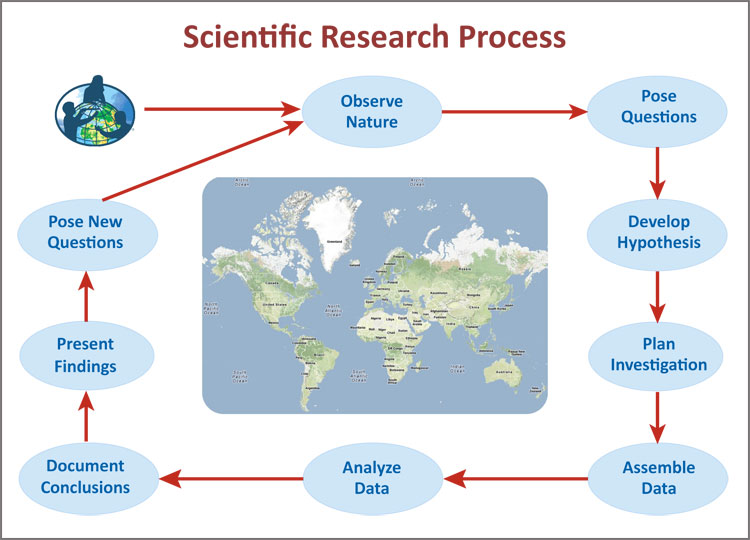GLOBE Connections
Flow of Energy and Matter - GLOBE Student Research Process

Steps in the Scientific Process: Science is something you can do. And doing science makes you a scientist! So, what do scientists do? They observe the world around them, ask questions, and use evidence (data) to answer the questions. They identify useful data that already exist or take new measurements. They also do calculations and analyze their data to draw conclusions about the questions they asked. Finally, and most importantly, they communicate their results so everyone can benefit from their work. By doing science, scientists gain a better understanding of the world around them and share that understanding with the whole world. Here are the steps that a scientist takes to conduct a research investigation. By following these steps, you can be a scientist!
Observe Nature: Looking at the world around you is an important first step in scientific research. There are many ways to explore the world and to help identify the area you want to investigate. The most basic way we make observations is with our senses. You can practice using your senses to make observations with the Water Detectives Learning Activity.
Sources:

